An Open Letter To PETA On Catch & Release Fishing
- By: Joseph Simonds
- on
- Found In: Fishing News, Salt Strong
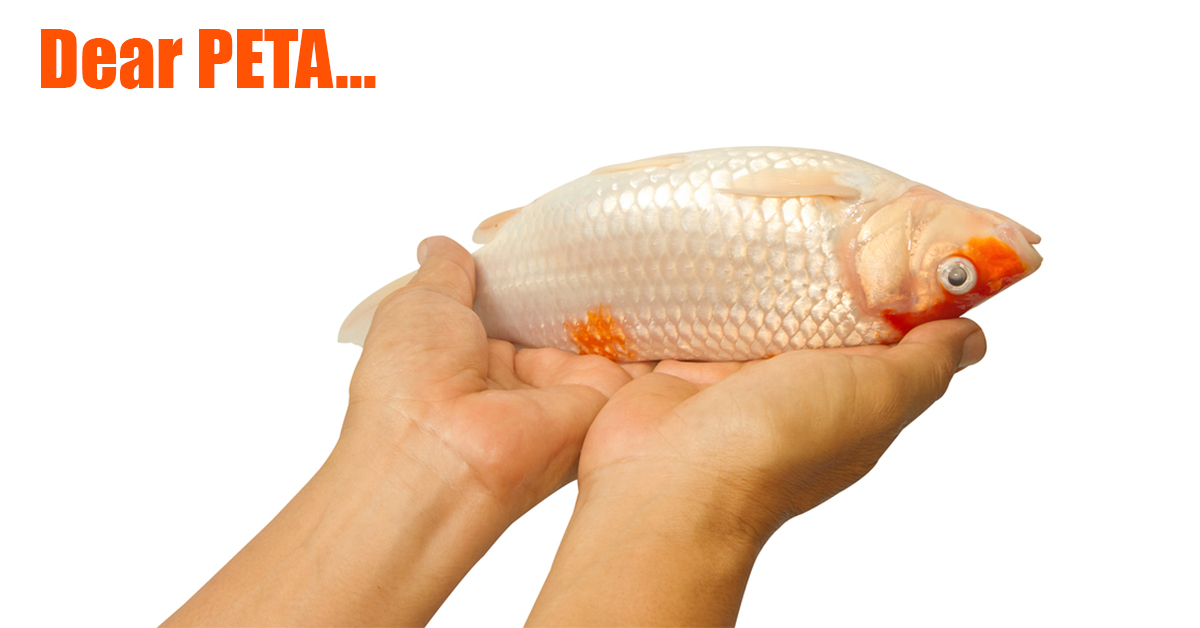
Dear PETA,
First of all, shame on you for drowning actor Joaquin Phoenix…
He was a decent actor, and he didn’t deserve to drown like that on your dime.
(If you never saw the PETA “catch and release fishing video” where they compare a fish out of water to a human drowning using actor Joaquin Phoenix to promote “going vegan”, you can watch it here below)
Secondly, shame on you for spreading misleading propaganda about catch and release fishing.
First, you came out with a pretty obnoxious catch and fishing campaign with Joaquin that lacked any fair and balanced comparisons that any well-respected and believable content would consist of.
But then you went even further with your more recent, “You’ll Never Go Fishing After Reading This” article that was so one-sided that you should be embarrassed to publish it.
For the record, I fully respect and support your overall cause to protect animals and to prevent animal cruelty. In my mind, PETA represents a passionate group of animal rights and cruelty prevention activists that do some amazing things in the world for animals.
But you have pushed it a bit too far on your misleading PETA catch and release fishing campaigns.
So in this open letter, I will be revealing THREE MAIN REASONS why your thoughts on ending catch and release fishing are dead wrong.
Including why kids, families, and MORE (not less) Americans should be fishing as much as possible.
While at the same time, I will also give you credit for hitting on two pretty serious issues in the fishing industry that need to be addressed and fixed. An issue that I believe PETA and the fishing industry can work together on, instead of butting heads on.
More on that in a moment.
First, let me tell you the story on how your PETA “Catch and Release” Article made me briefly rethink my career path recently…
“Did I Make A Mistake Starting A Fishing Company?”
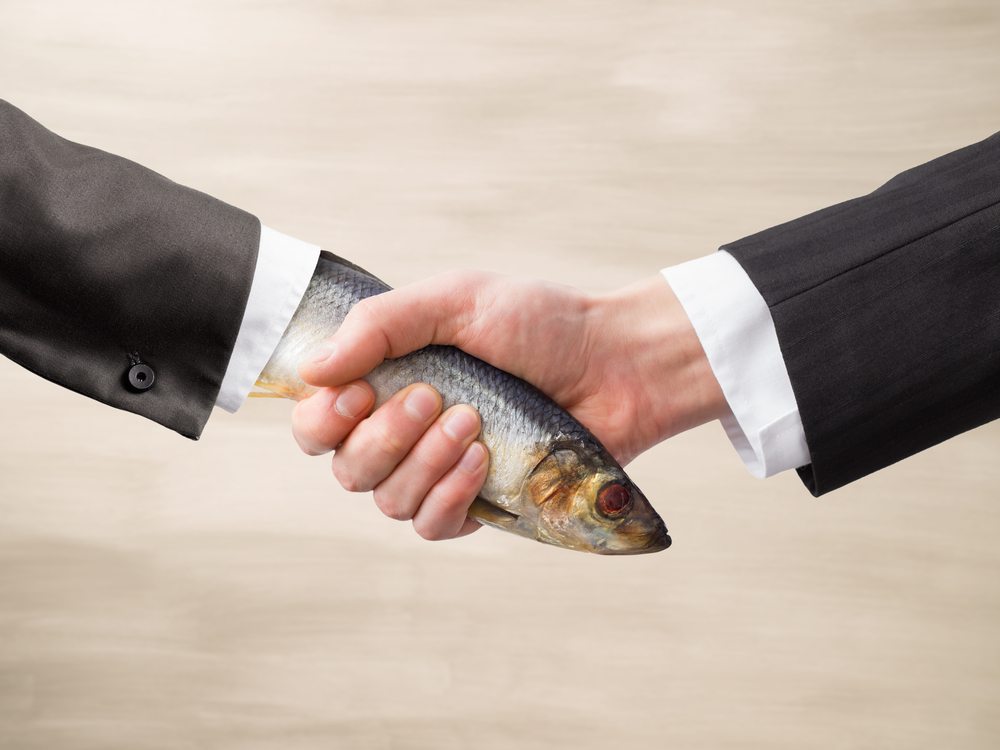
Just a little over seven months ago, I made one of the biggest decisions of my life.
I walked away from the financial services industry that I had served (and it had served me well) for over 13 years to pursue my dream of working with my brother to start a saltwater fishing company called Salt Strong.
Our overall mission at Salt Strong:
“To help saltwater anglers catch more fish and create memories that matter through fishing.”
I say it was a big decision because the following things have occurred over the last 18 months:
- My brother Luke and I quit our six-figure jobs, sold everything, and even burned our suits to pursue our missing of teaching the world to fish
- I convinced my wife to quit her amazing job to help me pursue my dreams
- We took our oldest daughter out of her amazing school in Atlanta
- We had to let our beloved nanny go
- We had to say goodbye to many of our closest friends
- We packed up everything we owned and moved from Atlanta to Tampa
- We are literally putting everything we have into this new venture to positively affect as many people as we can reach
And shortly after my big decision to “burn the ships” behind me and set forth on my new path, an old associate of my mine forwarded me your article on the harms of catch and release fishing.
Truth be told I completely ignored the article for a few days as I was crazy busy and I had other things on my mind besides hearing what PETA had to think about fishing.
However, a few days later things slowed down, I pulled up the PETA catch and release fishing article, and started reading away…
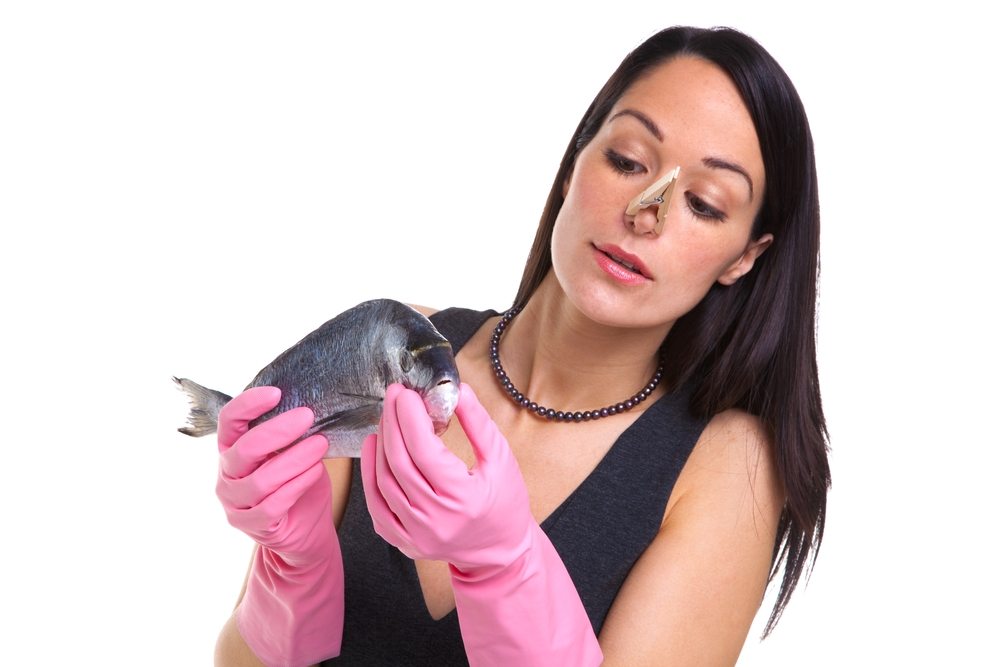
Here is an excerpt from the article (this is how the PETA article begins):
Imagine that you’re a fish, darting around your watery home and finding tasty snacks to enjoy. Now, imagine that you bite into one of those snacks and suddenly feel searing pain as a sharp hook rips through your mouth. You fight against it, but the painful hook is pulling you up toward the surface of the water. You struggle until every last ounce of your strength is gone. You’re then hoisted into the air, away from the safety of the deep water, and that’s when you begin to suffocate.
Read more: http://www.peta2.com/blog/catch-release-fishing-cruel/#ixzz3f8xbQ9y5
The wording and the vivid analogies definitely get your attention, regardless if you have fished your entire life, or if you have never wet a line before. And the article combined with the “fish suffocating video” definitely got me thinking…
Let me list for you the main points and takeaways from the PETA Catch and Release article that had my rethinking my new role as a fishing advocate. The PETA article made the following points:
- The PETA article says fishing is harmful, and that it is not family fun
- It said fish have nerves (just like humans and other sophisticated animals) so they can feel pain (like a hook going into their lip or mouth)
- It said a hooked fish not only endures physical pain from the hook, but that it also experiences terror and stress from being caught
- It said fish can have their protective coatings removed due to human hands touching them
- It discusses the evils of putting pliers down a fish’s throat to try to get the hook out
- Countless other animals like birds, turtles, and other wildlife choke or get entangled with discarded fishing tackle and fishing line
- It said there have been studies that show some fish that were caught and then released had died of shock due to suffering from the severe psychological distress of being out of the water
All in all, they have a few valid arguments, but at the same time have a few misleading and exaggerated statements as well.
At either rate, this PETA article made me reflect on my decision to start a fishing company.
It made me reflect on why I enjoy fishing.
It made me reflect on how I fell in love with the sport of fishing.
It made me reflect on how fishing has impacted my family, how it has brought us closer together, how it has fed us and nourished us in numerous ways over the years.
Finally, it made me reflect back on why I want to help teach the world how to fish with my dream called Salt Strong.
Here is what I came to realize after many days of reflecting and talking to numerous anglers and animal lovers about the subject and catch and release fishing…
Related Post: “9 Amazing Reasons To Take Your Kids Fishing”
Click Here to read it now!
3 Reasons PETA Is Dead Wrong About Catch & Release Fishing
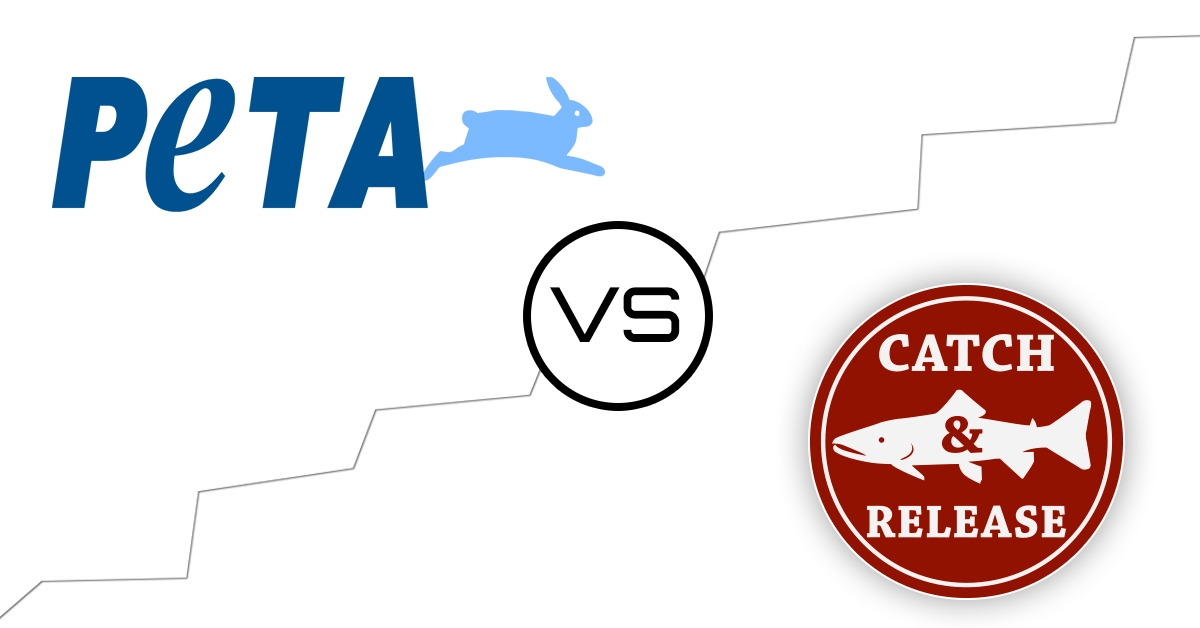
1) Fish Do NOT Feel Pain Like Humans
Yes, Fish feel changes to their body and they feel changes pertaining to their environment (just like Roaches, Wasps, and Spiders do when they are sprayed with bug spray).
However, they do NOT have emotions, and they do not have nerves that humans have.
In fact, not even remotely close.
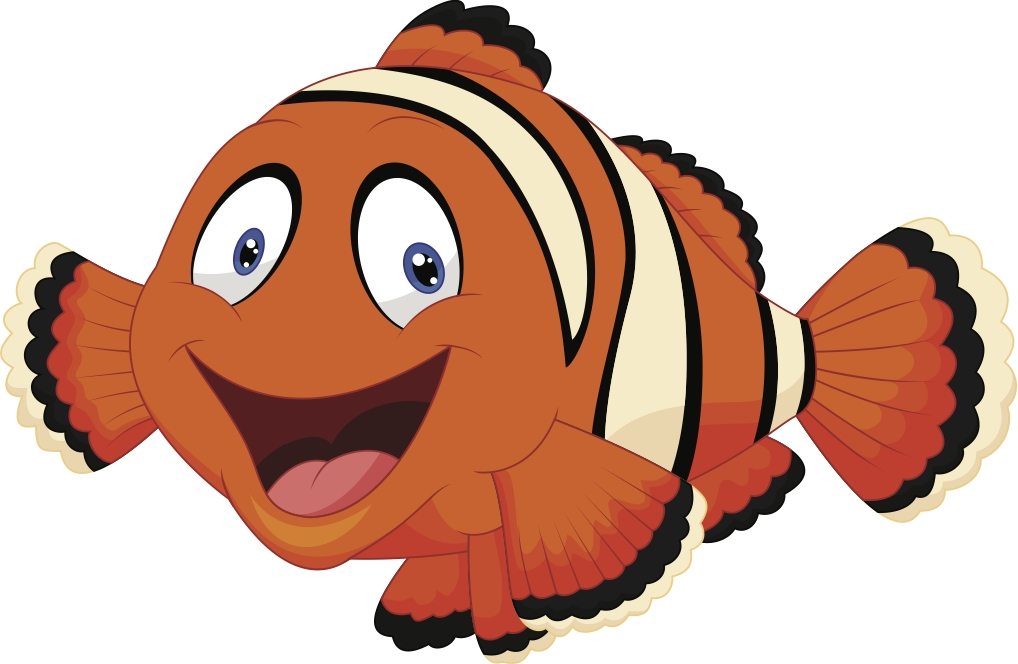
To compare a fish going through severe psychological and emotional stress is like saying ants need to be protected and start seeing chiropractors because they are suffering from severe back problems from lifting too much weight.
It is what they were born to do!
And there is nothing that anybody can say or do that is going to even remotely eliminate the “stress” from a fish’s life. Fish were born to eat each other… they were born to withstand stress… they were born with the amazing ability to face death every single day and keep on ticking.
Can you imagine waking up every single day of your life knowing that someone close to you (perhaps even a parent or sibling) would die that very day? Perhaps they would die right in front of you while you sit there and watch your family member get eaten alive…
Sadly, that’s the life of a fish.
It is a life of stress, it is a life of eating each other (other fish and animals kill way more fish every year than humans ever could), and it is the ultimate “dog-eat-dog” world. To compare a fish’s life, or a fish’s stress, or a fish’s feelings to a human is like comparing the nutritional value of a fast food double bacon cheeseburger to broccoli… it just doesn’t hold any weight.
In fact, I could make a counter-argument to your catch & release theory that a fish’s happiest moment is when it is released. It certainly beats getting swallowed alive by a bigger fish, carried off by a bird, or thrown in a live well to get gutted and cleaned later.
Does this fish below look like it would have preferred to die over catch and release?
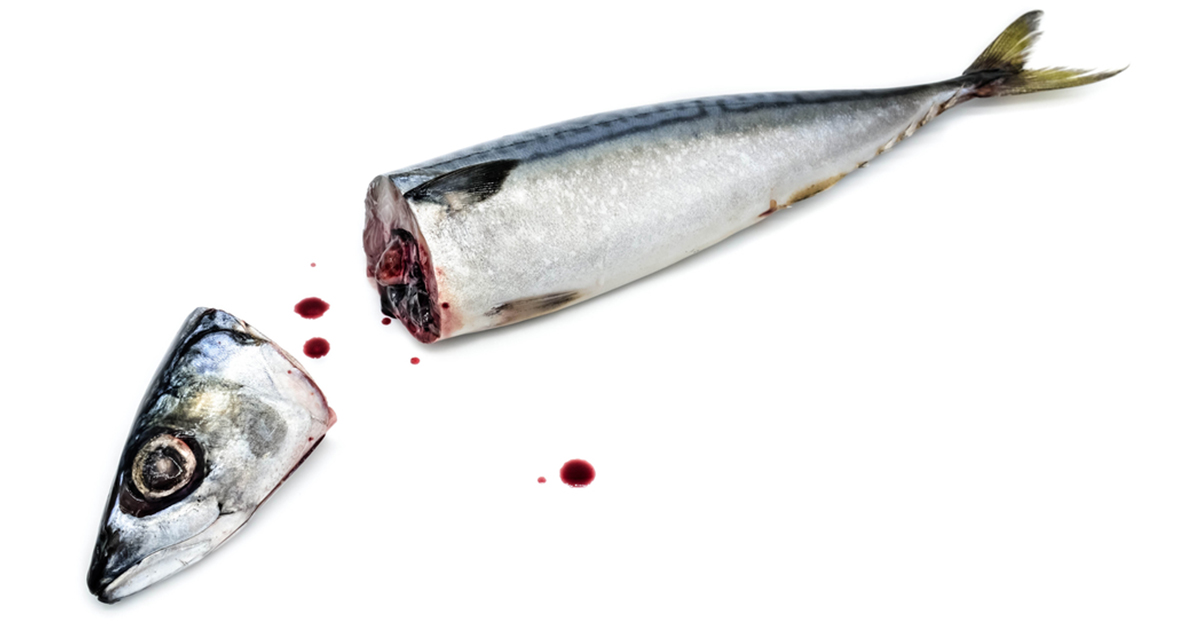
I can only imagine a fish is smiling ear to ear right after it gets released, knowing that it just escaped death. Heck, being out of the water for a fish means a shark or larger fish can’t eat them at that moment. It might just be the least amount of stress in a fish’s life for all we know…
It certainly beats the other two Stressful options that fish go through every single day:
- Get caught, killed, and eaten by humans
- Get chased down, killed, and eaten by a bigger fish, sharks, porpoises, birds, bears, wolves, and a slew of other animals that feed on fish every single day
It might sound harsh, but for the sake of being a repeater, that is the life of a fish EVERY SINGLE DAY. And fish have been living this way for thousands and thousands of years.
Fish do not wake up thinking about a job, or about the weather, or about the news, or about health care, or about checking their Facebook feed. Fish spend every waking hour only thinking about these two things:
- Where can I get my next meal?
- How do I avoid getting eaten by a larger fish, shark, bird, or some other land animal while looking for my next meal?
To compare a fish to a human in terms of pain, emotions, and stress is absurd.
Not to mention, there was an actual scientific study featured here in the Huffington Post that suggests a fish’s brain is nowhere big enough or sophisticated enough to process pain the way a human would. As you can read in the article (or the full abstract study on fish feeling pain here), the debate that animal activists like PETA keep bringing up revolve around the presence of (or lack thereof) nociceptors in fish.
What are nociceptors? Nociceptors are the sensory receptors that speak to the brain when they detect physical damage and feelings of pain. At least that is how nociceptors work in humans. No one has been able to prove they work similarly in fish yet.
Furthermore, many fish do not even show signs of having nociceptors at all.
Dr. James Rose from the University of Wyoming argues that any presence of nociceptors in fish does not necessarily mean they work the same as humans. Rather, when a fish fights back on an angler’s line and hook, it’s simply acting instinctively as it was born to do.
Instead of acting out of pain, the fish acts out of reflex. Just like a wasp reacts immediately getting sprayed with wasp spray. Just like a butterfly reacts when it loses a wing. Just like a spider or a roach reacts when it loses a leg trying to get away from shoe…
Another issue I had with your article and video is you keep inferring that fish are like humans. PETA infers that fish are incredibly sensitive, smart, and can even suffer extreme trauma when hooked or when taken out of the water (similar to a human drowning).
Well if that is true, how do you explain the countless instances where a fish bites a bait with a hook, gets hooked through the mouth, fights the angler so hard it breaks the line (so now it has a hook and line hanging from its mouth), yet it’s memory is short enough that it will get hooked and caught again within an hour’s time frame from the original “traumatic” experience.
There have even been countless instances where anglers catch (and take out of the water) the exact same fish in the same day. Sometimes within the same half hour!
This really happens, people!
Here is just one of many videos showing a Florida Snook being hooked and fought (eventually breaking the line with the hook in his mouth), and then minutes later bites a new bait and gets hooked again! So now it has two hooks in its mouth, and two lines hanging out of its mouth.
I tell you this not to glorify it, but to further prove that getting hooked cannot be as traumatic and terrifying for a fish as you think it is, or they would certainly not make the same mistake just minutes later (click here to watch the video. It is the second video and it happens around the 6:20 mark).
And here is a second video of a large Grouper that gets hooked, then puts so much pressure on the line that it snaps the heavy duty fishing line, only to get rehooked again minutes later with the old line and hook still in his mouth from the “traumatic fight” just minutes prior (click here to watch it).
I don’t know about you, but that doesn’t sound like the fish experienced terror or suffered from extreme trauma to me…
Because if getting hooked, pulled around, and potentially being held out of the water for any amount of time was as painful as you describe (to the point it can traumatize, stress out, and even kill a fish), wouldn’t you think the fish would be a bit cautious for days afterwards? Or at least an hour of that traumatic incident?
I know if it were a human that went through a traumatizing situation, they would stay free and clear of a similar incident for weeks, if not years.
The Oldest Fish In The World
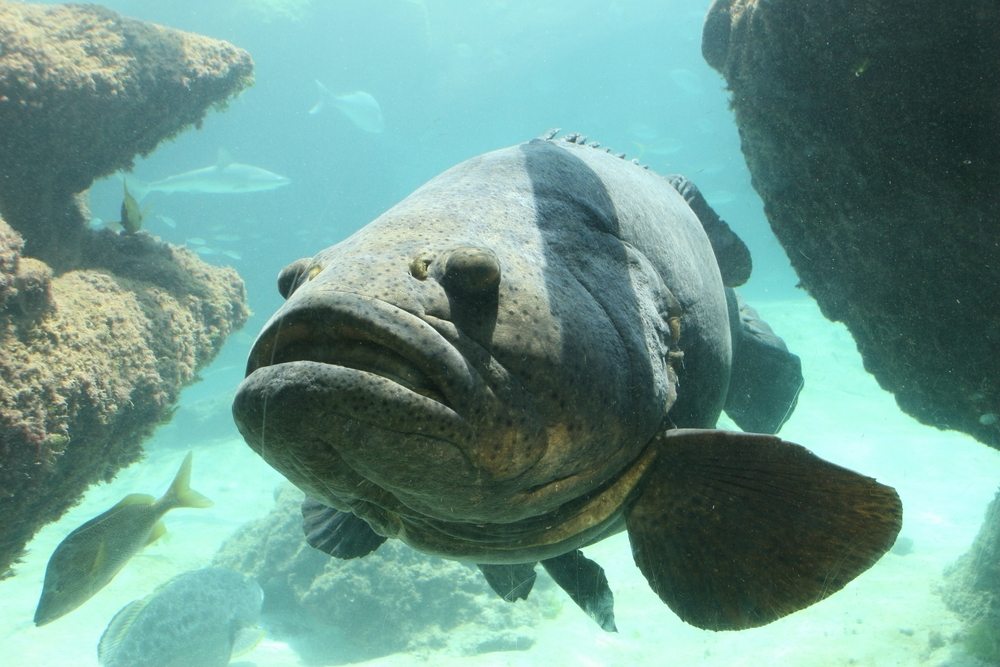
As I pointed out earlier, many fish don’t last very long in their environments.
It truly is a dog eat dog world (regardless of any humans or commercial fisherman catching fish), and fish and other animals kill each other every single day for food in the millions.
It’s just part of nature.
And do you know which fish survive the longest? It’s actually the ones that have been in the most gnarly experiences. The ones that have faced death more times than any of their fish comrades. It’s the fish that have survived with the most scars that have lived the longest.
It is no different than the oldest person living in the world today (by the way, the oldest lady in the world is Jeralean Talley at 116 years of age. Ironically, she said the three things that she contributes her longevity to are God, fishing, and coffee. You can read her story here about how she still goes fishing at least once or twice per year as it keeps her in good spirits).
The oldest living people have experienced the most, they have faced death, they have seen countless friends and loved ones die, and they usually have more scars than anyone else.
What doesn’t kill you makes you stronger has never rung so true…
Now does all of this mean that we should manhandle fish, keep them out of the water so we can take obnoxious selfies for Instagram before we throw them back in?
NO! Heck no.
In fact, that is an issue that I want to address a little bit later in this open letter to PETA.
But what it all does mean is that we need to respect the fish while fishing, we need to ensure that the fish can swim away with no issues, and we need to limit the amount of time we keep a fish above water.
Of course, it also means that you should not believe false claims that fish are suffering from stress disorders and have feelings like humans…
Hogwash.
2) Anglers Do More Than Anyone To Preserve The Ocean & The Conservation of Fishing
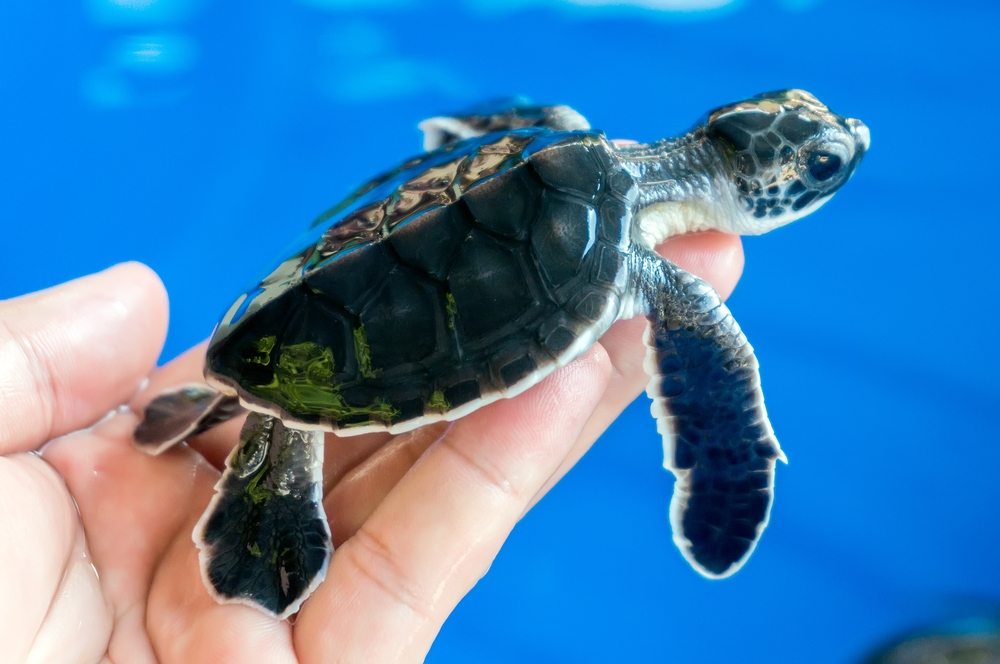
Quick question for PETA.
Would you be pleased to hear about a group that spends hundreds of millions of hard-earned dollars protecting and conserving the following?
- 575 species of wildlife
- Over 200 species of freshwater fish
- Over 500 species of saltwater fish
I can only assume you would reply with an enthusiastic, “Yes”
What do these numbers above represent?
These numbers represent the amount of wildlife and fish that my wonderful state of Florida protects and helps preserve through the Florida Fish and Wildlife Conservation Commission (see all of the FWC details here).
Let me show you another number real quick:
$363,837,894.00
What does that huge number represent?
That is the total amount of funding for the Florida Wildlife Conservation Commission for the fiscal year 2014-2015.
And yes, the decimals are in the right place. That is over $300 million greenbacks that go towards wildlife, land, animal, and fish protection and conservation!
And do you know where that money comes from?
It comes from the same anglers and hunters that you are trying to eliminate and rub the wrong way. The same ones like me that are donating money, that are buying fishing and hunting licenses, and the ones that take immense pride in conservation of land, water, and all that lives in it.
And keep in mind, this incredible funding and conservation effort is just from ONE state! There are 49 more that have conservation commissions and hundreds of millions of dollars at work protecting fisheries and wildlife as well.
“What About The Irresponsible Anglers?”
Let’s address an objection many PETA fans are probably yelling at the computer right now as they read this.
“What about the irresponsible anglers that leave trash in the water? And the ones that leave old tackle and fishing line out for other animals to choke on and get tangled up in? And what about the irresponsible anglers that are holding fish out of the water to the point they die (when they aren’t eating them).
Yes, this is a serious issue.
But just like any occupation, just like any industry, just like any religion, and just like any organization, you are always going to have a handful of bad apples in a large group.
And the fishing industry is certainly not immune to that. But keep in mind, it is the same funding by anglers that helps employ wildlife officers and enforcement on the waterways to arrest and help eliminate the bozos out there that give fishing a bad name.
And I believe that with your help, we can all clean it up even more.
But first…
What Is PETA Currently Doing To Help Conserve The Land?

So the big question I have is, “What is PETA doing to protect and conserve the land, the fish, and the marine life besides trying to eliminate anglers and turn them into vegans?”
Through my lens, I see your attack on fishing as nothing more than trying to eliminate millions of jobs and making the world a worse place to live in.
Is that really the legacy you want your kids, grandkids, and great-grandkids to remember you by?
That you were responsible for killing millions of jobs, that you shut down a multi-billion dollar industry that does more for fisheries and coastal areas than any other group in the world, that you ruined an industry that feeds millions of families, that you helped destroy an industry that invents and invests in all kinds of new ways to save animals and fish… all because you “think” fish might have feelings like humans do?
And if you had your wish for fishing and hunting to end tomorrow, who would protect and conserve everything for the future generations to come? Who would raise the hundreds of millions of dollars to protect, nurture, and upkeep all of the public land when the main contributors and funders have been disposed of?
Is PETA going to strap on scuba gear and start spearing Lionfish like our friend Alex Fogg of the FWC does to help save other fish and entire underwater ecosystems from these invasive lionfish? (read more here on how Lionfish are creating massive amounts of destruction to coral reefs and fish)
Is PETA going to assemble an expansive army of Prius hybrids to start doing rounds in the forest to make sure public land and wildlife is safe? Is PETA going to hire marine biologists and a network of people around the world to protect all of the marine species?
I hope you see the irony here PETA.
You are trying to eliminate the one group of people that care for the future of the fish and the water more than you do. The one group that will do anything in its power to make sure their kids, grandkids, great-grandkids, and so forth have the same opportunities to fish and to experience outdoor life like they did.
And let me repeat that if you eliminated fishing altogether (which is clearly your goal regardless if it is catch and release or caught and killed for eating), you also eliminate millions of jobs.
- You eliminate state wildlife rangers across the country.
- You eliminate many scientists, doctors, and marine biologists that dedicate their life to fish and wildlife.
- You eliminate mom and pop fishing and tackle stores across America.
- You eliminate entire boating and fishing industries that keep the economy going.
- You eliminate billions of dollars of funding to keep up public property maintained.
- And you eliminate the very people that are out there in the fields and streams ensuring that animals and wildlife do not go extinct.
All because you think that fish might have feelings and emotions.
PETA, you don’t go shooting the goose that is laying the golden conservation eggs for all of America.
Why do you think Ted Turner bought up every acre of land he could get his hands on? It wasn’t so he could go 4-wheeling in the mud and leave beer cans everywhere (I am guessing this is your false impression of a hunter). It was so he could do everything in his means to protect and conserve as much land as possible.
Why do you think people like Guy Harvey donate so much of their time and money to conservation? It isn’t like they need the publicity, and it certainly isn’t profitable. It’s because people like Ted and Guy who have a burning desire to protect the ocean and all of its inhabitants more than anyone at any organization I know.
Yet, it is these same “fish heroes” like Guy Harvey that you try to tear down.
It just doesn’t make any sense for you to attack fishing once you take a step back and look at the big picture. If anything, why not work with fishing and conservation leaders to improve the sport of fishing instead of spending so much time trying to tear it down…
Final note on the subject: Anglers and Hunters are America’s Top Conservationists for Wildlife!
3) The Fishing “Experience” Trumps Everything.
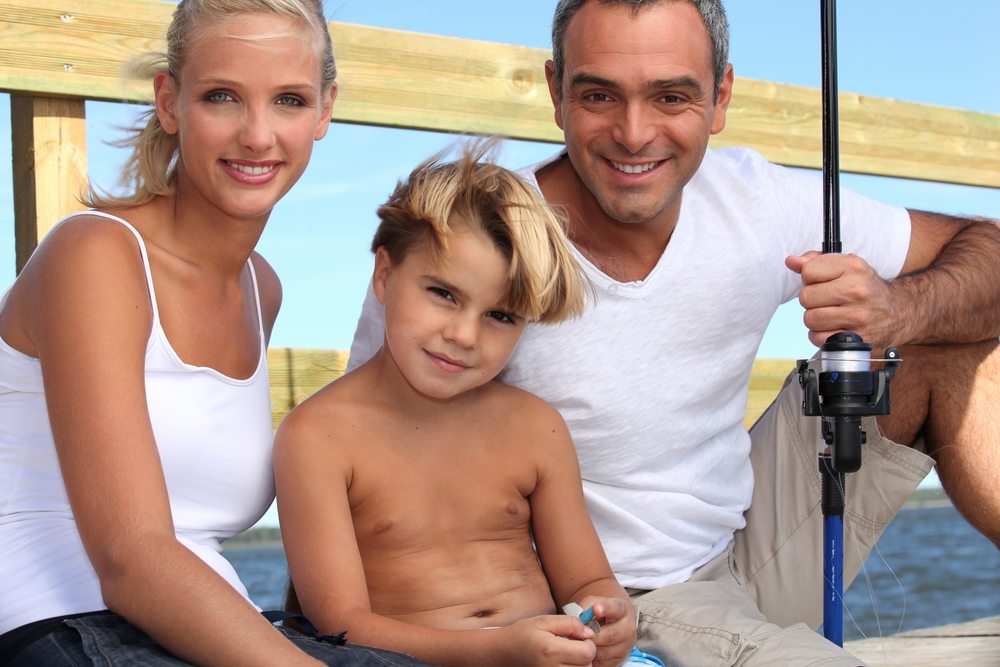
Let me tell you a quick story about a young kid that had his life changed by fishing.
A young boy went out fishing for the very first time with his father and grandfather in a small lake in central Florida many decades ago.
The three generations of men were armed with cane poles, a couple yards of old fishing line each, some small hooks, and a loaf of bread.
They sat on an old rickety dock and caught bluegill after bluegill, and the boy had never been so excited in his entire life. In fact, it is a memory he still treasures 30+ years later.
This boy quickly grew addicted to catching more fish… and bigger fish.
It kept him outside, it kept him out of trouble, it kept him engaged, and it kept him happy. So his parents loved it as much as he did.
And before you knew it, he was out on his own catching largemouth bass with his brother after school in their old, green canoe.
As he became a skilled fisherman through his senior year in high school, he looked back to realize that he had learned some incredibly valuable lessons while fishing:
- Camaraderie
- Knot tying
- Engineering (testing the perfect lures for each circumstance, testing rod lengths and strengths, testing line strengths, testing knot strengths, and using ingenuity to fix fishing tackle and even holes in your canoe when you don’t have much money or resources)
- Mechanics (taking a fishing reel apart and knowing how each piece works together)
- Marine biology
- The effects of pollution in our lakes and oceans
- Love of nature
- Failure (nothing can teach a kid about how the real world really works like fishing does. You can’t win em all every time, but if you stick with it and learn from your mistakes, you will find success)
- Persistency
- Respect for fish
- Patience
In essence, this boy had learned some of life’s most valuable lessons from fishing.
Lessons that aren’t taught in school… lessons that many parent’s aren’t teaching their kids today… lessons that many kids today will never experience… lessons that are critical for survival in the real world.
Fast forward a bit, and this kid is graduating at the top of his class at a prestigious college.
This kid goes on to be an industry leader and even publishes two well-respected books on Amazon.com in the Financial Services and Insurance space.
He goes on to start and then sell his own company.
He then raises a family for himself and begins to teach his kid’s the critical life skills that come from fishing. But more importantly, he is creating experiences and memories that matter for his kids.
Memories and experiences that were so powerful and lasting for this guy when he was a kid, that he attributes much of his success and joy for the world today to fishing.
How do I know?
Because that kid was me.
And the experiences I had on the water of bonding with my dad, with my mom, with my grandparents, with my brothers, and now with my wife and daughters are some of the best memories I have.
So powerful that I walked away from a steady six-figure job and risked it all to teach the world how to fish and to put a smile on people’s faces through the act of fishing.
Today, I attribute my persistency, my love and respect for animals and the water, along with my passion to ensure this next round of kids get off their devices and put a fishing rod in their hands, to the amazing experiences I had while fishing.
I certainly don’t remember most of what I received for Christmas as a kid, I don’t remember scores of my little league games, and I don’t recall all of the Nintendo games I played… but I certainly remember my experiences out on the water.
And there are countless numbers of guys and gals just like me that were raised fishing, and they are doing everything in their power to make the world a better place by teaching fishing in the next generation.
Not to mention, releasing more fish than ever before to make sure the future generations can have the same experiences that I had.
I tell you all of this to let you know that the experiences kids, adults, families, spouses, co-workers, and friends have out on the water while fishing are irreplaceable. They are more powerful that you “fish-haters” ever give them credit for, and they can help shape kids and young adults into better people.
That is one of the many reasons I am such an advocate of showing America why we need “More Tackle boxes and Less Xboxes” in our homes today (you can read that article here).
Kids today are spending more time inside, they are horrible at communicating because they rely so much on text and social apps to speak to one another, and many of them lack any real world experiences. Fishing can solve all of those issues. And the thrill of feeling a fish on your line is one of the few things kids can do outdoors that truly trumps any video game.
And it will certainly create memories that matter, and experiences that will last a lifetime.
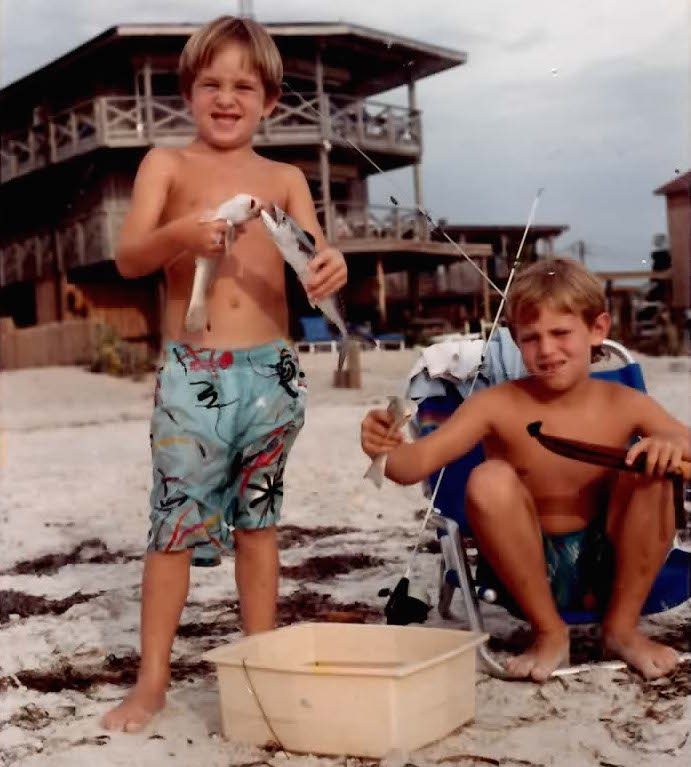
Related Post: “9 Amazing Reasons To Take Your Kids Fishing”
Click Here to read it now!
The Day I Suffocated To Death… Literally
Oh, by the way, I forgot to mention one eerily ironic story that happened to me when I was 16.
At the age of 16, I went it to the hospital for a “routine” surgery… getting my tonsils and adenoids removed.
To make a long story short, when the anesthesiologist put the bronchial tube down my throat (while putting me to sleep for surgery), I had my first ever (and only to this date) full-on asthma attack.
Instantly, my lungs expanded, collapsing on the bronchial tube and cutting off my airway.
As the doctors tried to pull the tube out of my throat, my body went into panic mode, and then it happened…
I suffocated to death…aka I felt what it is like to drown. And yes, I literally flatlined for a second on that hospital bed that day.
Fortunately for me the doctors injected me with some sort of steroid which helped get my body going again, they quickly released the tube from my collapsed lungs, and I finally started breathing again. I spent a few days in intensive care, but I came out with a smile on my face, and a new appreciation for life.
I tell you this to prove that even after I personally drowned to the point my heart stopped beating, and even after all of the trauma and stress it caused on my body, I still turned out pretty darn well.
And I came out smiling and lucky to be alive just like a fish being thrown back in the water.
What doesn’t kill you makes you stronger…
P.S. – I still have my tonsils and adenoids to this day, as my parents said they were never taking a risk losing their oldest son to tonsils again.
The Fishing Issues That PETA Was Correct On
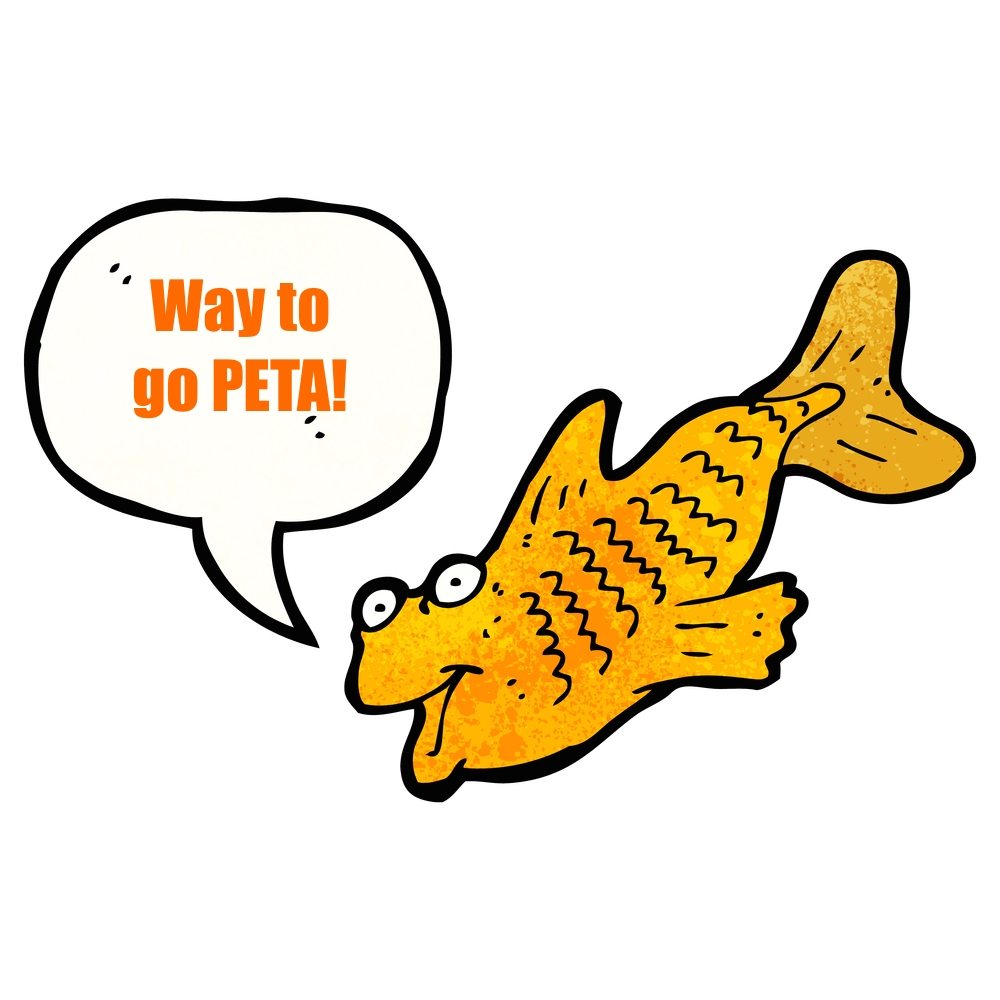
1) Discarded fishing gear and fishing line left behind is hurting and even killing animals
This is a serious issue that is facing the fishing industry, and it is one that I give PETA full credit for recognizing and bringing to light. According to PETA’s article on catch and release fishing there are “millions of birds, turtles, and other animals that sustain debilitating injuries after they swallow hooks or become entangled in fishing lines. Wildlife rehabilitators say that discarded fishing tackle is one of the greatest threats to aquatic animals.”
And I concur. This is due to years and years of careless tossing of old plastic fishing lures in the water and left behind fishing line by negligent anglers.
The good news is that this issue is now mainstream and everyone out on the water is not only aware of it, but making a point to call people out, and even picking up after the small percentage of “spoilers” out there. As I mentioned, the vast majority of anglers are the nation’s ultimate conservationists, and they will be leading the charge on cleaning up the waters.
The other good news is that there are solid groups like Keep America Fishing that are spending lots of money and resources in their “Pledge to Pitch It” campaign (read about it here) where they are encouraging and incentivizing anglers to throw away and recycle all plastic fishing lures and all fishing line.
Of course, this doesn’t solve all of the problems overnight, but the fact that the entire fishing community is behind this to the point that it is now “very uncool” to just toss an old lure or fishing line into anything but a trash or recycling receptor is good news going forward.
2) There are some serious issues with incorrect handling of fish, keeping fish out of water way too long to get a picture, and there is an issue of holding large fish improperly when taking them out of the water before a release.
It all comes down to education.
Just like it used to be cool to smoke cigarettes on airplanes before people realized it was killing humans from second-hand smoke, it used to be cool to hold fish however you wanted, to keep them out of the water for as long as you need to, and casually throw them back in and hope they swam off.
However, just as we realized that smoking in restaurants and airplanes places isn’t good for mankind, the same can be said for anglers in regards to handling fish properly, releasing them to give them the maximum ability to thrive and survive, and to keep fish out of the water for as short of a period as possible.
But quite honestly, from the pictures I continue to see on social media outlets of people holding fish incorrectly, we still have a long way to go.
And I don’t want to turn this open letter into a catch and release tutorial, but please anglers, for the sake of protecting fish and your local fisheries, please read the article below and watch the video in the article when you are done reading this open letter to PETA.
Note: We recently published an article (with an awesome educational video) called “Must Know Catch and Release Fishing Tips for Saltwater Anglers” (you can see it here).
Conclusion
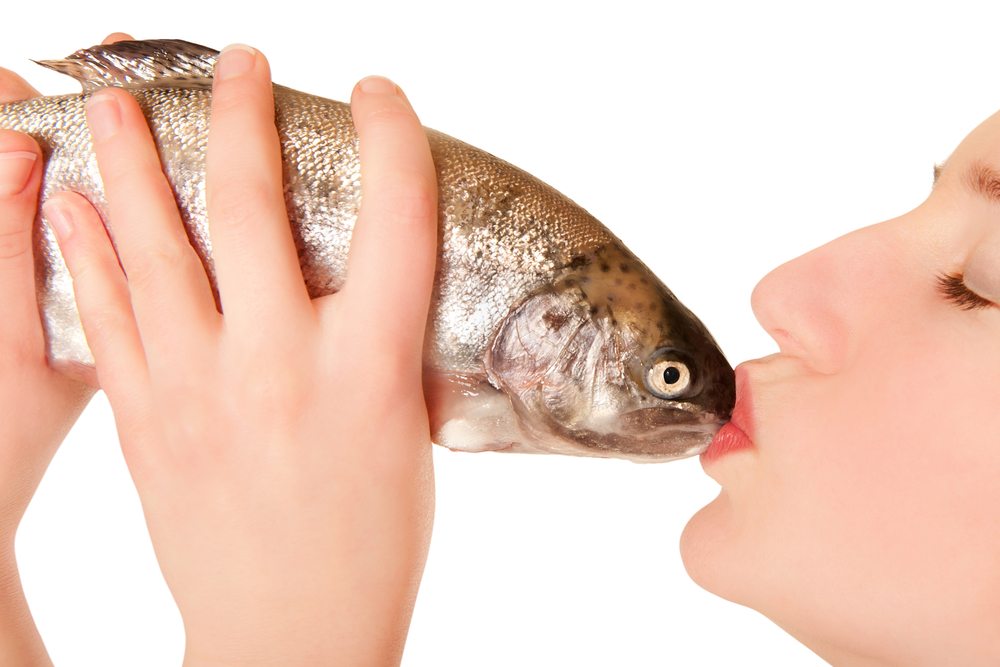
PETA, you made some important points in your two different campaigns against catch and release fishing.
Issues such as fish being held out of the water for excessive amounts of time, fishing tackle being littered and left out to hurt or kill other wildlife, and inappropriate handling techniques of fish need to be brought to light.
But there is simply no reason to destroy and put an end to catch and release fishing (or catch and eat fishing) because you think that fish might feel some stress and trauma by being caught. These are the same fish that have lived with more stress and trauma than almost any other class of animals out there.
The same fish that are getting chased by larger fish, sharks, and other animals every day. A fish’s daily life is sadly made up of two things:
- Try to find food to eat for the day
- Try to avoid getting eaten by a larger fish, shark, bird, or any other long list of land animals that eat fish while looking for food
Regarding trying to end fishing, shame on you for attempting to brainwash the youth of America into thinking fishing is some evil activity.
Moreover, spreading negative fishing propaganda with a celebrity doesn’t convince a single angler that you are right and anglers are wrong.
In fact, it does just the opposite. It polarizes the opponent, which rarely does anybody any good. Just look at our own government if you want to see polarized views in action (aka nothing ever gets accomplished).
I’d love to see your next PETA fishing article be a little fair and balanced like most good (and believable) research is.
Finally, this open letter serves more of a challenge to PETA than anything else.
A challenge to help make fishing safer on the fish. To help protect the fish. To help educate anglers on acceptable catch and release practices instead of trying to end fishing altogether.
PETA, you have the ability to influence a lot of people. Please harness your influence into helping improve the fishing world instead of fighting a battle that no one wins by trying to tear it down.
You have plenty of fishing and ocean conservation groups (including Salt Strong) that would love to find a way to combine forces to ensure our oceans, our lakes, and our wildlife is protected so that future generations can enjoy it like we did…
And for the sake of celebrities everywhere, stop drowning actors…
P.S. – I would love any and all feedback from both sides of the argument. All I ask is that you keep it classy, leave the vulgar language out, and speak your mind without being condescending or negative.
P.P.S. – If you think your friends or network would find this open letter interesting, please Tag them or Share this with them. I really appreciate it.
Related Post: “9 Amazing Reasons To Take Your Kids Fishing”
Click Here to read it now!
Related categories:
STOP WASTING TIME ON THE WATER!
Do what the “SMART ANGLERS” are doing and join the Insider Club.
Here’s what you’ll receive today when you join:
- Weekly fishing reports and TRENDS revealing exactly where you should fish every trip
- Weekly “spot dissection” videos that walk you through all the best spots in your area
- Exclusive fishing tips from the PROS you can’t find anywhere else
- Everything you need to start catching fish more consistently (regardless if you fish out of a boat, kayak, or land).

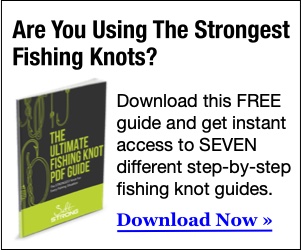

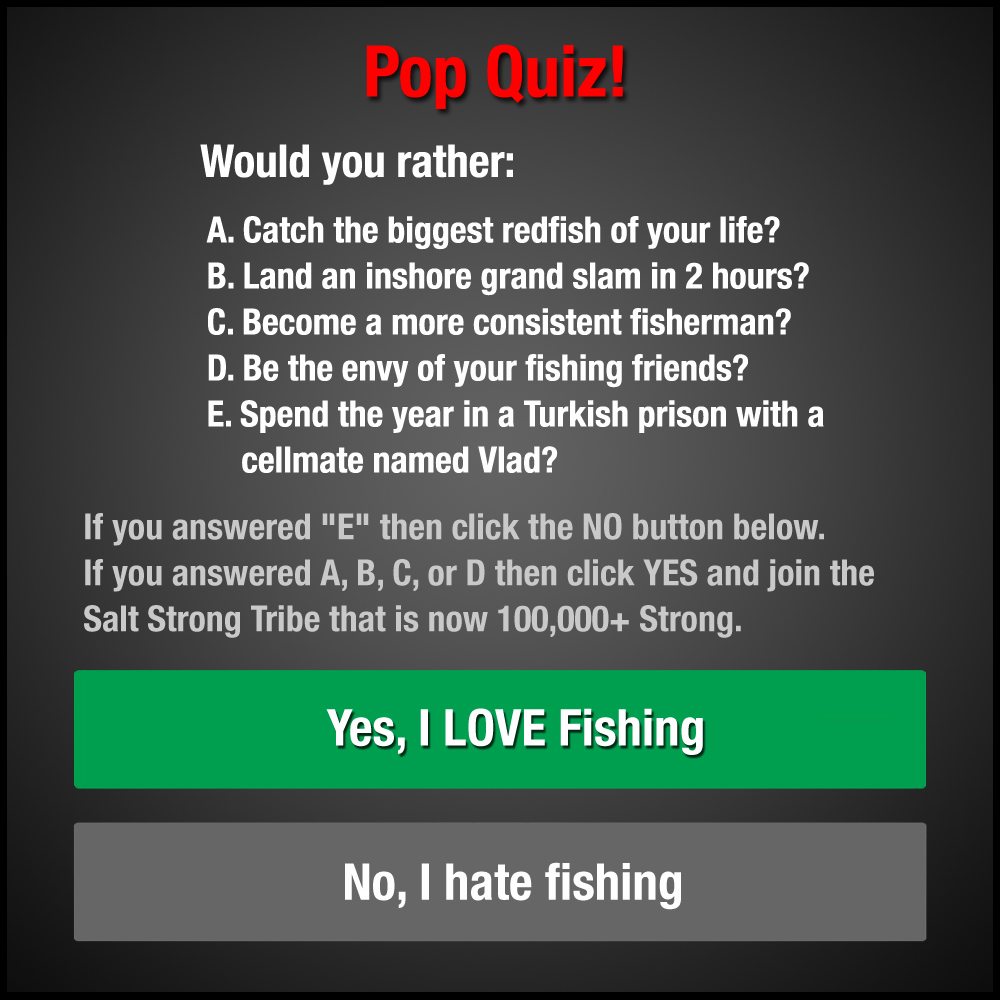

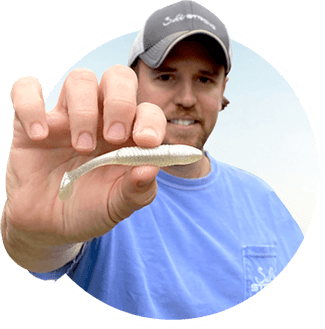
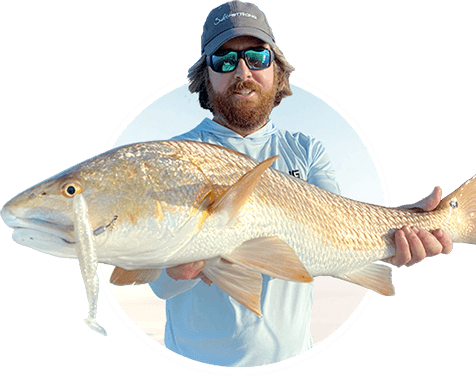
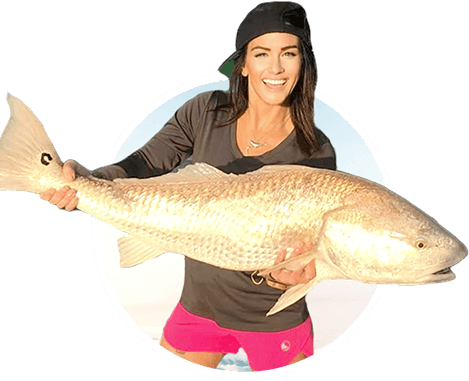
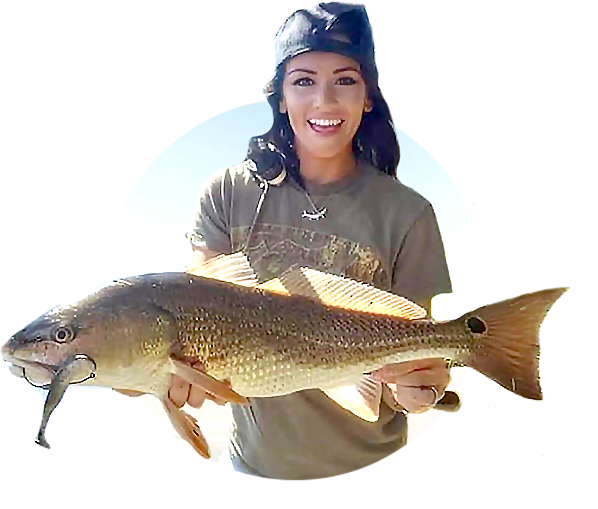
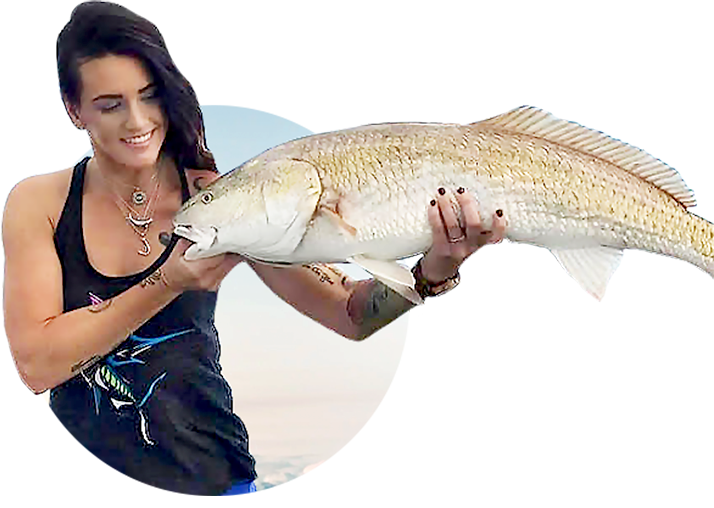
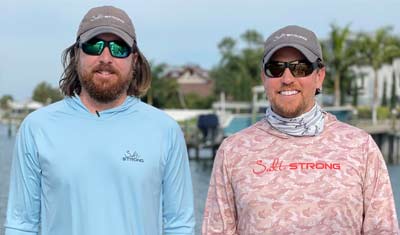
The concept of deriving pleasure at the expense of another creature is sick. You can analyze the pain and trauma factor all you want but catch and release fishing for your own gratification and sicker yet, making it a family event is a sick and deranged practice. I’m a fisherman and the main intention when I go fishing is to catch and eat fish. There’s a world of difference there. You guys are very good at what you do but you need to learn more about how sacred life is and moreso, how to respect it.
RE Catch Release:
Catch & Release is BS!!!!
Most sport anglers (catch and release) use barbed hooks and mishandle fish for their catch photo by holding the fish by the mouth or squeezing….
Catch & release sport fisherman keep catching fish for hours – damaging fish in the process.
***
\\\\\\\\\
\\\\\\\\\\\\\\\\\
I eat my catch. One legal striper and I’m done. Catch & release guys keep fishing injuring more fish in the process!!! Using barbs & mishandling fish.
\\\\\\\\\\\\\\\\\\\\\\\\\\\\\\\
You guys know what I’m saying is the TRUTH!!!!
That’s why it makes you mad…..::
they could care less… they’re having fun at the expense of other creatures.
RE Catch Release:
Addition to my previous comment:
After killing 5 freshwater 3LB+ in 2 days, I decided to go barbless.
I use inline hooks on my lures – no more trebles hooking the eyes and bodies of fish.
It’s an individual choice.
I hope more people do go barbless – it helps fisheries.
If barbs are your thing keep to it. It’s a free country………….
……Just don’t whine about new limits fish.
***
To the moderators:
Yah…I’m an old dude with too much free time. LOL
If hurting animals is your hobby, you’re a psycho.
At least eating them has a valid purpose. Catch and release is literally deriving fun from another animals life or death struggle.
Meat Eater-
I Agee 💯!
Was hoping to find good arguments against PETA, but at the end it read like an Onion article written by an angry child that is afraid to get their toys taken away.
Recreational fishing, especially catch and release, is nothing but glorified animal abuse for people without real hobbies. I can get behind if the fish gets eaten later on (especially if it is an invasive type of fish).
Also a big chunk of the released fish die sooner or later, thanks to the injuries and stress.
I think a big factor left out of this article is the post-fight mortality rates and other consequences. Even if 99% of fish survive the dilemma, that is still a lot of fish dying from the fight. But something you can’t really know or quantify is how many fish are unable to pursue their next prey, or evade their next predator, due to fighting to complete exhaustion. There are just so many questions up in the air about it and this is why folks like yourself, anglers, animal rights people, and sportsman need to be able to communicate openly and fairly with one another to establish best practices. I used to be an avid stingray fishermen, but even with heavy gear the stingray fight with all of their strength and I often wondered how many I caught potentially died or were unable to survive after the fight. I dearly miss catch and release fishing and am almost looking for an argument to allow me to ethically do it again in good conscience. I know I do not have all the facts I am just trying to do the right thing. Thank you for making valid points against PETA’s attack. Their heart is in the right place they are just very biased and unable to understand alternative points of view.
Fishing for a reason to allow myself to stingray fish again lol. Would love to hear from other people.
When you teach a child not to kill a catapilla, it is more for the childs benifit than the catapillas.
Comparative anotomy of digestion
We have emotions that “lesser” creatures do not. Wonder why?!
Well said. I carry a garbage bag and gloves when I go fishing to pick others peoples crap. I replace my treble hooks with single hooks. I pinch the barbs down to make C&R easier and safer for the fish. I only handle fish with a a slime safe net and wet hands. I use circle hooks. All to make sure the fish lives another day. I support hunting as part of wildlife management ( I don’t hunt, don’t own a gun and never would, but with the lack of predators, hunting is an important part of wild life management and I support those that do). PETA and PITA are pretty close acronyms.
I’m a PETA hating adamant vegan. But… I’m picking up fly fishing for sustainability purposes and so “the man” doesn’t keep me alive 100% of the time, so the vegan title will only be when I don’t have fish on hand. I will say going vegan for 2 years made me a better chef than I ever could’ve been eating bland meat dishes for 100 years. Vegetables should be the main source of your meals, alongside breads, supplemented by some meat, as Michael Pollan says.
I’m sick of not being able to grow my own food, yes. Farmers have to decimate thousands of tiny critters sucked up into the combine to get food on my plate. Since starting to grow my own vegetables as a vegan, I’ve had to kill more things than I did in my entire life combined, no matter how small. Hence why I am trying to grow as many vegetables as possible and supplement that with the occasional store bought vegetables, as well as freshly caught, local fish.
This globalized society does not lend us much in the choice of options. We need to take America back and become self reliant, grow our own food, remove pollutants from ALL our water sources so we can safely eat from them. The pollution is absolutely ridiculous, I’m having trouble even finding a place I feel comfortable eating a fish from and I live in FL.
I do not believe fishing for sport is particularly ethical, but I can’t hate on it, fly fishing for a tarpon does look to be a great battle, it’s a shame it’s not much of an edible fish.
Fish eat other fish all day long but PETA doesn’t comment on that.
Any type of hunting for sport is cruel.
I agree with PETA
Become informed scientifically Peta is dead wrong please don’t harm people like you have in the past not peaceful not productive other animals suffer while you waste time on B s go do something to help those animals